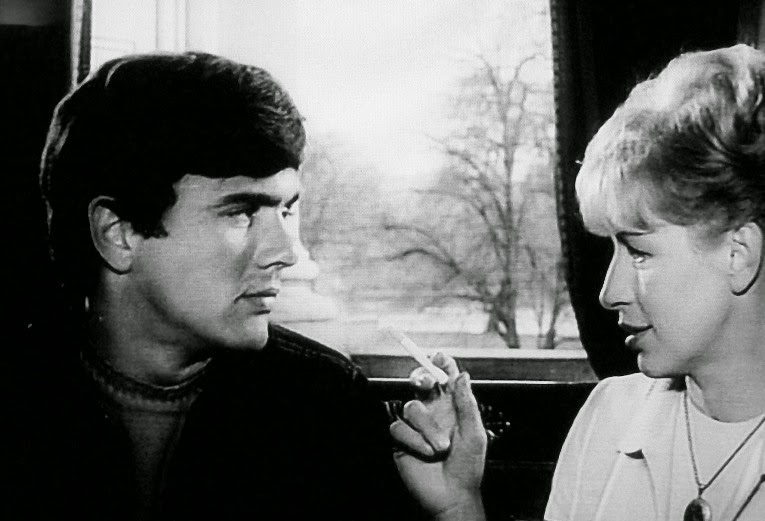 A rather weak stab at wartime propaganda, the sole purpose of this British film is to make the Russians, who were their allies at the time the film was made, seem likable. Unfortunately, the movie is too long and has a lead performance (by the normally reliable Lawrence Olivier) that belongs in a different movie. Olivier plays a Russian engineer who is sent to England in 1939 (pre-war) to oversee production of his new ice-breaker ship propeller. His first impression is that the British are a bland, depressing people. He stays with the shipbuilder's family and his harsh edges are worn off a little, largely through the development of his relationship with the shipbuilder's daughter (Penelope Ward) who falls for him. The middle third of the film is a comedy of manners as Olivier stumbles through an assortment of awkward social situations and begins charming people almost despite himself. Things peak at a historical pageant that Olivier finds to be evidence that the British are living in the past. Ward calls him out as priggish and conceited, he calls her out as hypocritical and heartless, and he goes back to Russia to keep working on the propeller, leaving things unsettled. Two years later, with war raging and the Russians and British as allies, Olivier returns with new propeller plans and is impressed with British resolve in the face of German aggression. This time, the pageant (pictured at left) is given to raise money for Olivier's home village. Olivier changes his mind about the Brits and about Ward, though at the end of the film, he returns to Russia with their romance still up in the air.
A rather weak stab at wartime propaganda, the sole purpose of this British film is to make the Russians, who were their allies at the time the film was made, seem likable. Unfortunately, the movie is too long and has a lead performance (by the normally reliable Lawrence Olivier) that belongs in a different movie. Olivier plays a Russian engineer who is sent to England in 1939 (pre-war) to oversee production of his new ice-breaker ship propeller. His first impression is that the British are a bland, depressing people. He stays with the shipbuilder's family and his harsh edges are worn off a little, largely through the development of his relationship with the shipbuilder's daughter (Penelope Ward) who falls for him. The middle third of the film is a comedy of manners as Olivier stumbles through an assortment of awkward social situations and begins charming people almost despite himself. Things peak at a historical pageant that Olivier finds to be evidence that the British are living in the past. Ward calls him out as priggish and conceited, he calls her out as hypocritical and heartless, and he goes back to Russia to keep working on the propeller, leaving things unsettled. Two years later, with war raging and the Russians and British as allies, Olivier returns with new propeller plans and is impressed with British resolve in the face of German aggression. This time, the pageant (pictured at left) is given to raise money for Olivier's home village. Olivier changes his mind about the Brits and about Ward, though at the end of the film, he returns to Russia with their romance still up in the air.Olivier is entertaining, but he’s a showboater here, using a comically overdone Russian accent, keeping his character at a distance from the audience, whereas the other actors are more naturalistic. Ward is vivacious but doesn’t bring much else to the role, so the romance remains tepid. In a large supporting cast, old pro character actors Margaret Rutherford and Felix Aylmer stand out, and I also liked Jack Watling as a handsome worker, comedian Leslie Hanson playing himself, and Edie Martin as an old lady who, suspicious of Olivier, gives Ward a copy of Crime and Punishment to read—during the war, she comes around to liking him (of course). Parts of this film are fun, even some of Olivier's performance, but the main problem is that, at almost two hours, it’s just too long. [TCM]
















